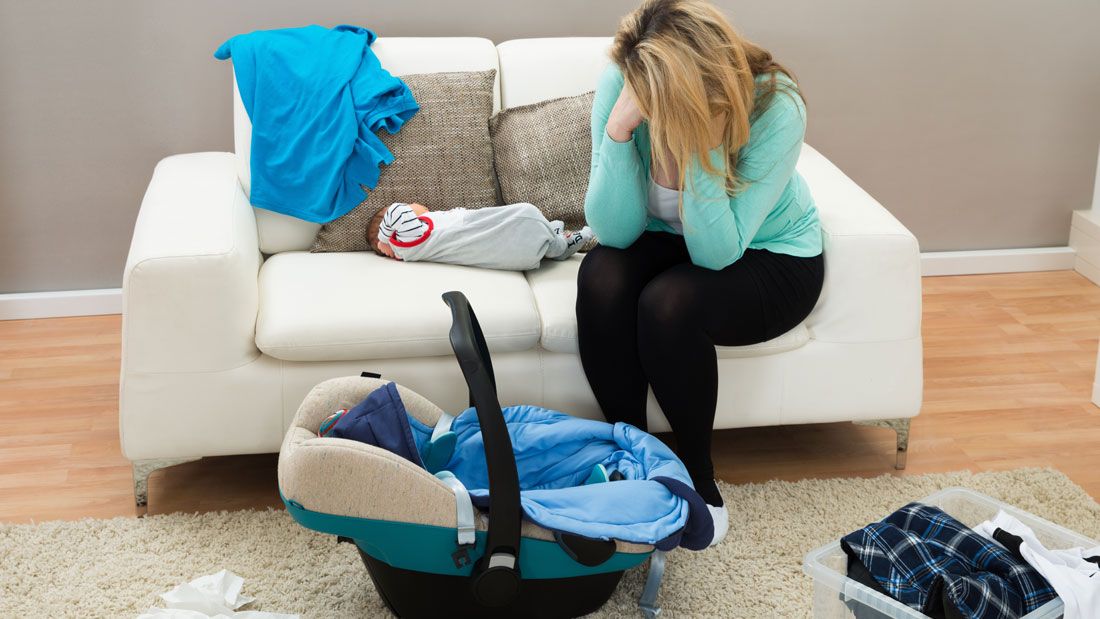
Once you deliver your baby, buy the puerperium-the six-week period by which your reproductive organs heal and return to their non-pregnant status along with your body goes through various physical, psychological and emotional changes. It’s really a critical here we are at all new mothers?his or her?person is still weak and liable to various infections and diseases.
While our bodies helps make the transition and attempts to heal, additionally, it simultaneously nurtures your growing baby, especially when you breastfeed, sometimes defining it as a hardship on your reproductive organs to heal completely and producing certain complications.
#div-gpt-ad-1525702346961-4
margin: 10px 25px 10px 0px;
#div-gpt-ad-1525702502842-1
margin: 10px 25px 10px 0px;
Post-natal Care: 3 Common Post-natal Health Issues
1. Mastitis
An inflammation in the breast growth, mastitis can originate from illness or blockage within your milk ducts, which affects your milk flow. In non-infectious mastitis, the milk remains inside of the breast type tissue and gets infected, when it is in infectious mastitis, the challenge is caused on account of bacteria.
Symptoms
- A part of the breast becomes red
- The involved area will likely be painful and hot to your touch
- Results in a burning sensation while feeding or, in severe cases, in anyway times
- Increase in body’s temperature or chills
- Excessive tiredness and body ache
Treatment
- Drink ample liquids and rest well.
- Feed your little one to actually are emptying your breasts. Should your baby is just not feeding enough, create the milk and store later on feeds.
- Apply a warm (or hot compress) into the involved area ahead of feeding to loosen up any hard lumps.
- Speak towards your doctor.
2.?Postpartum Constipation & Hemorrhoids
Many women experience constipation and hemorrhoids?(swollen vein or veins around the anus) after birth. While both conditions could also be present when pregnant, hemorrhoids (also referred to as piles) might be especially painful after birth and will occur inside of the anus and above it, and not in the anus and under its skin.
#div-gpt-ad-1525702346961-5
margin: 10px 25px 10px 0px;
#div-gpt-ad-1525702502842-2
margin: 10px 25px 10px 0px;
Symptoms
- Difficulty while passing stools, that is alongside bleeding
- Swelling, pain, itching, and discomfort near the anus
- Lumps near your anal region which may often be painful to touch or while passing stool
Treatment
- If you happen to be constipated, make an effort to pass stools as frequently since you notice the pressure, just about the most produces little if any result.
- Stay hydrated, drink loads of fluids and may include fiber-rich foods in your diet.
- Your doctor may suggest excrement softener to prevent tears and?ointments, suppositories or pads.?In the event that doesn’t?help, a physician may suggest surgery.
- Witch hazel helps to reduce soreness and itching surrounding the anal area, but do speak with your doctor first and figure out how to make use of it safely.
- Dandelion, specifically, has been found being useful in treating constipation during pregnancy. Discover how to utilize it here.
3.?Puerperal Infection
Puerperal infections are?infections in the female reproductive tract following childbirth and are mostly observed in the uterus additionally, the tissues that surround it.
Symptoms
- Pain inside lower abdomen
- Chills and fever over 100.4 degrees Fsreignheit
- Very foul-smelling vaginal discharge
Treatment
#div-gpt-ad-1525702502842-3
margin: 10px 25px 10px 0px;
- Severe puerperal infections require hospitalization and so are addressed with intravenous antibiotics.
For more interesting stories, visit our well being page. On Women’s Health here.
#div-gpt-ad-1525702502842-4
margin: 10px 25px 10px 0px;
